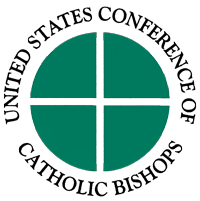The Department of Communications shares the following statements from U.S. bishops confirming the moral permissibility of two new COVID-19 vaccines, as well as a Detroit Catholic story about the statements and vaccines.
Michigan bishops:
On Dec. 18, Archbishop of Detroit Allen Vigneron joined his brother bishops of the Michigan dioceses to release the following statement:
“It is morally permissible to receive the vaccines developed by Pfizer and Moderna. Neither of these vaccines has used cell lines originating in tissue taken from aborted babies in their design, development, and production. However, both the Pfizer and the Moderna vaccine did use such a cell line in the confirmatory testing. This connection to abortion is very remote, however, and it is important to keep in mind that there are varying levels of responsibility. Greater moral responsibility lies with the researchers than with those who receive the vaccine. The Congregation for the Doctrine of the Faith has indicated that it is morally permissible to be vaccinated if there are no alternatives and there are serious health risks.3 Such serious health risks are present due to the current pandemic.”
The full statement from the Michigan bishops may be found here.
United States bishops:
On Dec. 14, the United States Conference of Catholic Bishops (USCCB) released the following statement from Bishop Kevin C. Rhoades of Fort Wayne-South Bend, chairman of the USCCB’s Committee on Doctrine, and Archbishop Joseph F. Naumann of Kansas City in Kansas, chairman of the USCCB’s Committee on Pro-Life Activities. Archbishop Vigneron currently serves as vice president of the USCCB.
“In view of the gravity of the current pandemic and the lack of availability of alternative vaccines, the reasons to accept the new COVID-19 vaccines from Pfizer and Moderna are sufficiently serious to justify their use, despite their remote connection to morally compromised cell lines.
“Receiving one of the COVID-19 vaccines ought to be understood as an act of charity toward the other members of our community. In this way, being vaccinated safely against COVID-19 should be considered an act of love of our neighbor and part of our moral responsibility for the common good.”
The full statement from the bishop chairmen may be found here.







